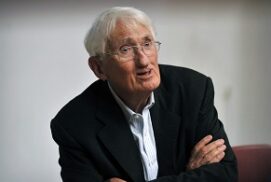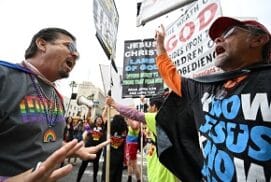Alessandra Tommasi 17 April 2025
Tit-for-tat tariff hikes have paused (for now) at 145% on Chinese imports into the U.S., countered by 125% levies on American goods heading to China. But the trade war shows no signs of ending: the White House is already threatening to raise tariffs again – this time to a staggering 245% – “as a result of China’s retaliatory actions,” and is not ruling out that countries – from neighboring Latin America to Europe – may soon have to choose between Beijing and Washington. Xi Jinping has vowed that China would “fight to the end.” For a Chinese perspective on this trade war, Reset DOC has reached out to Professor Shaun Breslin, Director of the European Hub for Contemporary China.











